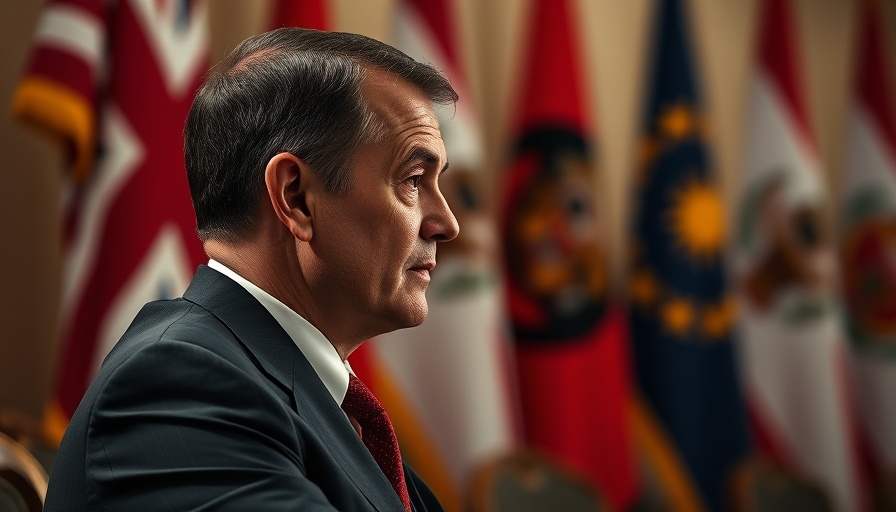
Trump’s Legal War with the Fed: A Critical Showdown Ahead
As tensions rise outside the courtroom, a new battle is heating up between Donald Trump and last year’s Federal Reserve leadership over a pivotal issue: interest rates. This unprecedented conflict has direct implications not only for the economy but also for the political landscape as each side prepares for a legal standoff.
What’s at Stake in the Court Battle?
Trump’s contention lies at the heart of the Federal Reserve's policies, particularly the interest rate policies implemented during his administration. The former president argues that current interest rates have stunted economic growth, affecting small businesses and everyday consumers alike. By bringing this matter to the courts, Trump aims to challenge the very foundation of the Fed's autonomy.
The tension stems partly from the Fed’s dual mandate: to promote maximum employment and stable prices. Critics argue that the central bank has been too aggressive in raising rates, a viewpoint that Trump has publicly supported, claiming it negatively impacts the average American.
Analyzing the Economic Implications
The implications of Trump's challenge extend beyond the courtroom. If the courts rule in his favor, we could see a considerable shift in how the Federal Reserve operates. For instance, lower interest rates could boost consumer spending and business investment. Evidence shows that when borrowing costs are lower, businesses often expand, leading to job creation—a factor essential for maintaining economic stability.
However, it’s not that simple. Economists are divided on the matter; while lower rates could stimulate growth, they might also reignite inflation. The delicate balance the Fed must maintain could be jeopardized if political pressures start influencing its decisions.
Past Lessons: The Federal Reserve’s Independence
Historically, the Federal Reserve has maintained its independence to conduct monetary policy without political pressure. This independence is crucial for maintaining public trust in the institution. Repeated calls for reform or changes in leadership, especially from high-profile figures like Trump, evoke memories of past political intrusions, sparking fears about the erosion of that independence.
There is a clear parallel to draw from previous economic crises where political interference hindered the Fed’s ability to act swiftly. Understanding these historical contexts underscores the importance of the Fed’s self-governing nature, especially in the face of significant financial challenges.
What’s Next for Trump and the Fed?
As the legal showdown approaches, observers are keenly watching to determine the potential outcomes. If Trump successfully disrupts the Fed’s operations, the repercussions could reshape the economic landscape in unexpected ways. The outcome will likely hinge on the judicial perspective regarding the separation of powers and the autonomy of monetary policy.
Voices from the Business Community
Local business owners have expressed mixed feelings about the developments. Many worry about potential volatility stemming from a changing interest rate environment, while others support the challenge, hoping that it will lead to a more favorable economic climate.
The stakes primarily rest on how these developments will affect everyday life. For instance, potential borrowers and small business owners need to consider how their financial decisions could be impacted long-term by the fallout from this courtroom battle.
Conclusion: A Call for Awareness
This courtroom clash between Trump and the Federal Reserve is more than just a political skirmish; it’s a crucial moment that could determine the trajectory of our nation’s economy. As the stakes climb, staying informed and aware of the developments can empower individuals and businesses to navigate the evolving landscape effectively. Understanding how monetary policy impacts your finances and livelihood is essential.
In light of these developments, readers are encouraged to pay close attention to how the relationship between economic policy and politics continues to unfold. Staying knowledgeable not only helps in making informed financial decisions but also positions individuals to engage more meaningfully in discussions about our financial futures.
 Add Row
Add Row  Add
Add 




Write A Comment